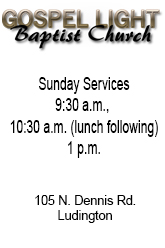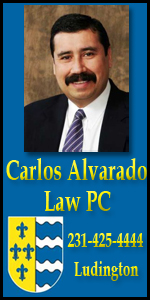 By Allison Scarbrough. OCP Editor.
By Allison Scarbrough. OCP Editor.
HART — The process of growing marijuana can create a strong odor, and city officials are working to eliminate the odor problem by amending its medical marijuana growing ordinance.
Amendments to the city ordinance include a requirement that all growing operations are equipped with a filtration system and that they are located at least 500 feet away from other growing operations.
The filtration system requirement applies to all existing and new operations, said City Manager Stan Rickard, whereas the 500-feet-rule applies only to new operations.
The city planning commission has scheduled a public hearing for Thursday, Feb. 4, at 4 p.m. at Hart City Hall to hear public comment on the issue. Written comments may also be submitted to Hart City Hall, at 407 State St., Hart, MI 49420 prior to the meeting.
The proposed amendments also include establishing caregiver registration and permits.
The planners met last Thursday, Jan. 7, for a public hearing on the topic, but there were not enough members of the seven-member board present — four — to hold a quorum in order to vote on the amendments. However, the three members who were present did hear some comments from the public.
Randy Miller, who is the building inspector for the city and for Oceana County, said he has been in four homes in the city where medical marijuana is grown.
“Odor complaints are best dealt with by filtration systems,” Miller said. A filtration system makes it a “non-nuisance property,” he said. Mechanical duct work has to be approved by the city with a zoning permit. “Most growers are trying to stay as low key as possible,” Miller said.
There is a $10 fee for a residential zoning permit and $25 for a commercial zoning permit, Rickard said.
The medical marijuana growing operations must be kept “very confidential,” Miller said, because it is medical information. “We’re treading new waters,” he said. “They have a right to privacy, and we are learning how to keep it low key.”
Information about the caregivers, including their registry identification cards and information about qualifying patients, will remain confidential with the city and will not be distributed to the public.
The Michigan Medical Marijuana Act was approved by voters in November of 2008. The state doesn’t specify each local jurisdiction’s rules, Rickard said. Individual municipalities can establish their own rules as long as they do not contradict the state’s rules, he said.
The city hired a consulting firm, LSL Planning, to assist with the medical marordinance.
“As medical marijuana use has increased, many jurisdictions in Michigan have enacted ordinances to regulate primary caregivers,” according to LSL. “Local zoning can regulate the areas where medical marijuana is permitted and adopt reasonable regulations to mitigate negative impacts. In Hart, and in many other jurisdictions, primary caregivers are limited to operation within a home occupation.”
Caregivers cannot operate within 1,000 feet of a school or library as defined by the Michigan Public Heath Code to ensure compliance with the Federal Drug Free School Zone requirements.
The planning commission will make a recommendation to city council for a vote on the amendments.
Several ballot proprosals to legalize recreational marijuana use are vying to get on Michigan’s November 2016 ballot.
















.jpg)



















 (1).gif)












.png)






